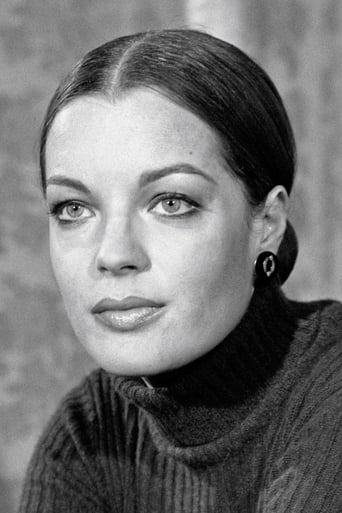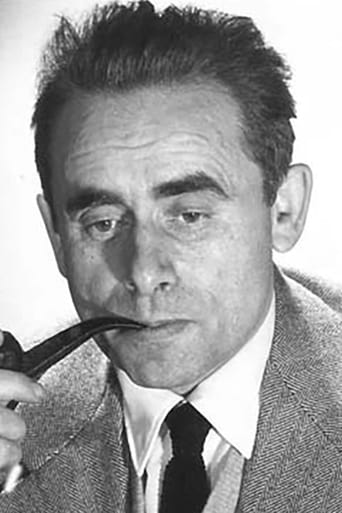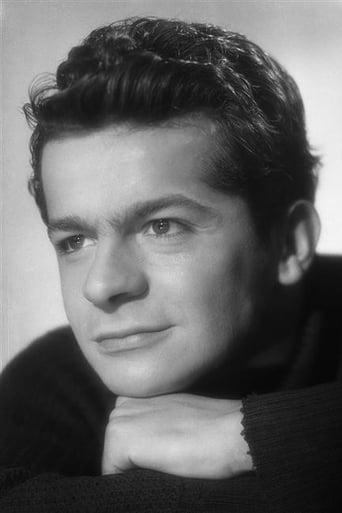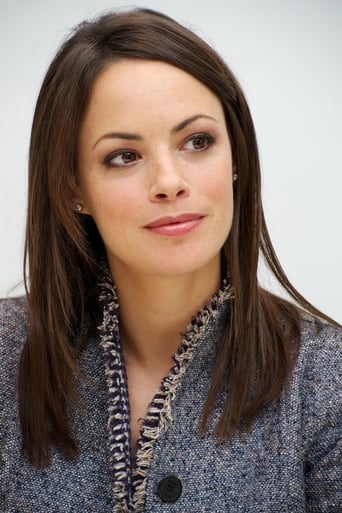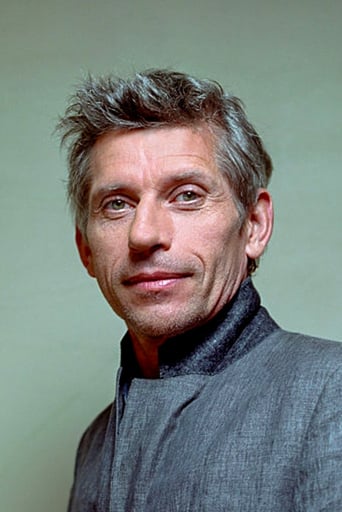Sexyloutak
Absolutely the worst movie.
Kodie Bird
True to its essence, the characters remain on the same line and manage to entertain the viewer, each highlighting their own distinctive qualities or touches.
Guillelmina
The film's masterful storytelling did its job. The message was clear. No need to overdo.
Jenni Devyn
Worth seeing just to witness how winsome it is.
tedg
Presuming that you have not yet seen it, here is a description.Henri-Georges was a remarkable filmmaker. Though contemporary with those normally tagged new wave, he was interested not in ideas but the effectiveness of cinema. His special talent was internal perturbations of reality. After a long period of silence, he embarked on his most ambitious project: a film about a jealous man, showing his torture through practically achieved cinematic effects.He got a huge budget from Hollywood and lavished it on the film, not on sets, costumes, actors. Much was shot, and then the thing unraveled, largely because of the filmmaker's own obsessions. Production halted.Later, in 2009, this film was made about the making of the previous one, weaving the movie and the making of the movie together. The format is superficially simple: we have seated interviews with people who were involved, while relevant footage runs behind them. We see much of that footage without the original sound, though some slight, small effects have been added. Most of the footage are strange optical experiments. Some is the action in "reality." We also, separately, have two contemporary actors reading the lines from the shooting script so at least we know the story such as it is.The result is remarkable. As collaborators, one after the other, testify to the growing madness of Clouzot, or apparent madness. Or perhaps genius. It is effective as a documentary, perhaps unique in its form. It merges fiction and non-fiction, story on story, folded so that it matters. The main actor walks off, the filmmaker has a heart attack, the lake on which filming occurs literally disappears. Trains come. Anxieties mount as loves and the obsession to create clash. We wonder about projects started but unseen from Welles, Hopper, Kurosawa. Like unimagined dreams we might reach, they perhaps have more power without us encountering them. Frankly, I never heard of this failed project before. I am grateful to have encountered it now, in this way.Unfortunately, you may find the optical effects strange, dated. They all are "real" in the sense of being generated according to physical laws and properties. These days, we normally denote the unreal by effects done virtually and supposedly unconstrained by reality. So the shock is reverse: the film we are examining (in black and white) is the fiction, while the madness within that film (in color) is real."You have to see the madness through," is the last line of this. Clouzot could not. Let's hope you, dear reader, do.Ted's Evaluation -- 3 of 3: Worth watching.
serge-33
Okay, this is an insiders' movie for the die-hards, but it works for everyone.The director presumably got the idea when he got stuck with Clouzot's widow in an elevator - he even thanks the elevator for its technical failure in the credits.What do we learn? Overall, we learn about flawed genius, about how unlimited budgets can send a brilliant director off-track. we learn about how far actors will go to satisfy their director's requirements.What do we see? First, being born in 1964, the year the movie was filmed, I loved the stilted, post-industrial surroundings at the lake and the hotel were the film was supposed to be set. I loved the costumes, the modernity and became totally nostalgic (to going back to being a baby, I suppose). Romy... Does it add anything we haven't seen from her? Perhaps not, but it sure is nice and especially to see her with Serge Reggiani who only makes her beauty shine more.Does it work as a documentary? Yes, very well, in my humble opinion. The director does not ask (irrelevant) questions, but he simply presents the material and gives us an insight that perhaps, there was more than Clouzot's seizure to halt filming. He uses beautiful background music to make-up for the missing soundtrack. The dialogues read by two really good actors: well, perhaps it was a bit contrite, but I was thinking all the time that one of the things that would have been quite mediocre had the film been completed, would have been that: the dialogues were flat, boring and superficial (but the actors read them well).My friend asked me: how many movies are there about a movie. Lots, but yesterday evening I could not think of one. But this is more, this is a documentary about a movie about failing to make a movie.Highly recommended.
rgcustomer
This, apparently, is a film where you gain prestige by saying you like it, thereby associating yourself with the great insane folk of the past, always a sure way to build cred. In my view, if someone has to tell you that someone is (or was) great, they probably don't know what they are talking about. If your greatness is limited to a time or place, you're not great. Sorry, but that's the way it is.In this case, the emperor has no clothes.Half of the audience I saw this with could not bear to sit through it to the end, and like Serge and Jean-Louis, they simply walked out. If that was the desired effect, then the filmmakers did great -- at failing.This film didn't know whether it wanted to tell the story IN the film, or the story OF the film, so it tried to do both, thus failing at both. You've got footage mixed in with experiment mixed in with interviews mixed in with acting, and then there's a soundtrack which we're told didn't exist.What I liked most about the film was the experimental footage, but even that got old rather quickly. There's only so long a person can be dazzled by the idea of rotating a light about someone's face in different colours. We get it already. To be fair, there are a number of other quite interesting shots, including for some reason a sea of noses, and a sparkly cellophane strangulation.I do hope to one day see the 1994 L'enfer, which was adapted from the 1964 failure. It currently has a 7.0 score on IMDb, so I hope it will be time well spent.
writers_reign
There are several valid reasons for wanting to see this film, not least the unshown footage of Romy Schneider who had the lead role opposite Serge Reggiani, add to that a film written and directed - in so far as it went - by Henri-George Clouzot, reminiscences of the shoot by the likes of Catherine Allegret and assorted technicians, the roping in of Jacques Gamblin to flesh out (via reading) some of Reggiani's scenes and what's not to like. The film was doomed from the start. Clouzot was a changed person and thought nothing of waking the crew at 3 a.m. to discuss an idea. Reggiani finally ankled on the grounds that enough is enough and was replaced by Jean-Louis Trintignant who never got on set because Clouzot suffered a heart attack and the film was closed down. It remains fascinating for any French film buff, especially when you throw into the mix the fact that Clouzot's widow, Ines, sold the script to Chabrol who went ahead and shot it. Old School versus New Wave. It's no contest and this fragment eclipses every movie that Godard ever shot.

